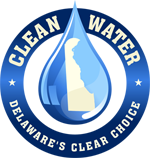
The Clean Water Campaign: Delaware’s Clear Choice
Thanks to you, the Clean Water Campaign was a success!
You’re being redirected to Delaware Nature Society’s ongoing advocacy work with clean water, land protection, and more. If the site doesn’t automatically load, click here.
You’re being redirected to Delaware Nature Society’s ongoing advocacy work with clean water, land protection, and more. If the site doesn’t automatically load, click here.